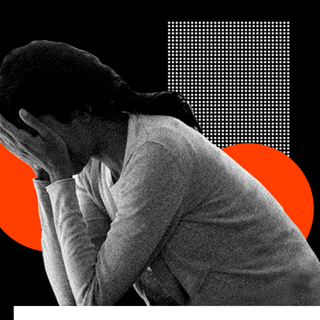Stress can cause graying of hair inpeople, but the process is also reversible if stress is eliminated, according to a new study.
Published in eLife, the study offers the first quantitative evidence that the graying of hair due to psychological stress is reversible. The findings suggest that “human aging is not a linear, fixed biological process but may, at least in part, be halted or even temporarily reversed,” according to the researchers.
The research involved 14 participants aged between nine to 65 years. The scientists compared variations in their stress levels against the smallest shifts in their hair color over one year using high-resolution scanning techniques.
They noticed changes in the pigmentation, or coloring, of people’s hair as stress levels increased and decreased. The results suggested when graying, or loss of pigments — the natural coloring matter in living tissues — began due to stress, it didn’t necessarily continue after the stress had passed.
“There was one individual who went on vacation, and five hairs on that person’s head reverted back to dark during the vacation, synchronized in time,” Martin Picard, an associate professor of behavioral medicine at Columbia University, who co-authored the study, told Scientific American, referring to a 35-year-old male participant with auburn hair.
Interestingly, a 30-year-old female participant with black hair, whose hair also reverted to its original color, retained a small, white segment corresponding to two months of high stress when she underwent marital separation and relocation.
“It’s pretty clear that the hair encodes part of your biological history in some way… [It] grows out of the body, and then it crystallizes into this hard, stable [structure] that holds the memory of your past,” Picard said in a statement, adding that the findings could “yield new clues about the malleability of human aging in general and how it is influenced by stress.”
Related on The Swaddle:
Why Do We Have Pubic Hair?
Moreover, the phenomenon of graying hairs regaining their original color was not just witnessed in the hair strands on individuals’ heads, but also in those from their pubic region.
Scientists also noted the reversal depends on how far the graying of hair had progressed. “[T]here is a window of opportunity during which graying is probably much more reversible than had been thought for a long time,” said Ralf Paus, a dermatologist at the University of Miami, who was also involved in the study. Researchers believe this “window” probably opens up around the time one’s hair has just begun graying — but is, perhaps, almost shut by the time they have a head full of gray hair, which Picard described as a “point of no return.”
“We don’t think that reducing stress in a 70-year-old who’s been gray for years will darken their hair or increasing stress in a 10-year-old will be enough to tip their hair over the gray threshold,” Picard noted.
However, given that the study involved a small group of participants, further research may be required to build on its interpretations about the correlation between stress levels and pigmentation of hair.
In the meantime, other members of the scientific community have welcomed the findings. “What was most remarkable was the fact that they were able to show convincingly that, at the individual hair level, graying is actually reversible,” said Matt Kaeberlein, a biogerontologist at the University of Washington, who edited the paper but wasn’t involved in the study.
“What we’re learning is that… the biological changes that happen with age are, in many cases, reversible — this is a nice example of that,” Kaeberlein added.




